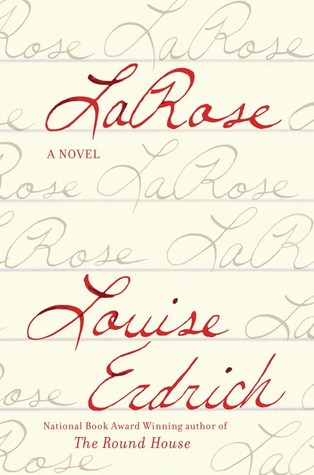Try not to collapse from shock, but here is one more person assuring you that Louise Erdrich’s latest book, LaRose, is really quite good. It begins with a tragedy: Landreaux Iron goes hunting a deer and shoots a child instead, the five-year-old son of his best friend Peter Ravich. As the Ravich family begins to crumble, Landreaux and his wife decide to give their own five-year-old boy, LaRose, to the Raviches in restitution. The story unspools from there, telling the story of LaRose’s Ojibwe family and the many LaRoses who have come before him, as well as the stories of two families in the present day and how they learn to navigate their impossible situation.

LaRose is a book with a lot of moving parts, and not everything occupies a proportionate amount of space to how interesting it is. For instance, I could happily have removed Father Travis from the book altogether, even though it would have meant missing out on this pure treasure of a moment:
I suppose you’re Father Travis, said the new priest. A frowning flush mottled his cheeks.
I suppose I am, said Father Travis.
I am Father Dick Bohner.
Oh no, thought Father Travis.
But then, Erdrich is so wonderfully specific and insightful with all of her characters that it would probably be a mistake to eighty-six any of these just because they aren’t specific to me. Predictably, I fell in love with LaRose’s Ravich mother and sister, whose rage and sadness are neither punished by the story nor swept under the rug for convenience. I kept dreading what would happen to Maggie, LaRose’s new sister, because girls like her (in fiction and not uncommonly in life also) tend to face bitter and disproportionate consequences for their unruliness.
Maggie taught him how to hide fear, fake pain, how to punch with a knuckle jutting. How to go for the eyes. How to hook your fingers in a person’s nose from behind and threaten to rip the nose off your face. He hadn’t done these things yet, and neither had Maggie, but she was always looking for a chance.
Wonderfully, though, Erdrich is writing about consequence less and forgiveness more, a story where nobody is just one thing (husband, drug addict, boarding school survivor, father, Indian, killer) and the result of a kind act can be a hundred times worse than the result of a brutal one. But the arc of her moral universe bends towards forgiveness and peace, which is a lovely thing to encounter in a prestigey book.
If you’re a Louise Erdrich fan, would you care to recommend some more of her books to me? What’s the best place for me to go from here?